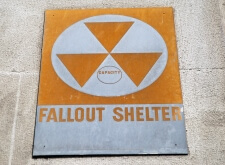 As if the development of a new generation of power stations to deliver energy to the UK over the coming decades was not precarious enough, the latest news from the Areva, the French nuclear business, could prove the final nail in the coffin of “new nuclear” in the UK.
As if the development of a new generation of power stations to deliver energy to the UK over the coming decades was not precarious enough, the latest news from the Areva, the French nuclear business, could prove the final nail in the coffin of “new nuclear” in the UK.
Areva were responsible for the design of the European Pressurized Reactor (EPR) for £24.5bn Hinkley Point in Somerset, the UK’s first new build nuclear plant in two decades, and is tasked with delivering the steam supply and instrumentation and control systems for the plant. As a result its importance to the project cannot be overstated.
Investment
EDF Energy the French state-owned electricity giant behind the Hinkley Point project is due to take a 50% stake in the consortium, with China’s General Nuclear Corporation and National Nuclear Corporation originally expected to take 35% between them and Areva the balance at 10%.
However with Areva’s losses escalating and fears that the appetite for investment from the Chinese is also waning all is not well with the project.
The Chinese have made demands in return for their promised investment that EDF Energy has so far baulked at. These demands have included the transferring of another EDF Energy site at Bradwell in Essex, where they can build their own reactor to their own design.
As a result EDF Energy has now opened talks with Saudi Electric, the national utility company about them taking at least a 10% stake in the scheme, depending on how much the Chinese do or don’t invest.
In return Saudi Electric hopes that its emergency backing of the scheme will help to secure French investment for its own domestic nuclear new-build programme to generate electricity, produce desalinated water and reduce the gulf state’s reliance on oil.
Delays
Whilst the investment for and final sign off of Hinkley Point remains in the balance, back in France, EDF Energy have blamed Areva for the delays in delivering key components on time for the EPR reactor being developed at Flamanville in northern France.
Flamanville is now expected to come into service in 2017, five years after the initial timetable, and unsurprisingly its £6.8bn cost is expected to significantly increase.
The intransigence of the Chinese, the troubles at Areva and the delays of the EPR model are an unhelpful backdrop to Hinkley Point and providing critics with increasing ammunition.
Steve Thomas, Professor of Energy Policy at Greenwich University, added to the criticism of the EPR project saying that it was:
“[A] bad, unbuildable design”
And with the world’s first EPR facility, also being built by Areva (at Olkiluoto in Finland) already 9 years behind schedule, the portents are not positive with Thomas saying:
“At first everyone thought it was just a one-off problem in Finland. But with the same thing happening [at the French reactor], maybe it is more than a teething problem.
“[This] misconceived design. It is hugely more complicated [than previous reactors], an absolute bastard to build and more expensive. [The design has] made a fool of Areva and destroyed EdF’s reputation as the world’s expert nuclear utility.”
Bailout
For their part, the 87% state owned Areva has blamed their current financial travails on the delay to restarting Japanese nuclear plant and the downturn in sentiment for new nuclear.
Whatever the reasons their problems have now mounted to such an extent that the company is looking ripe for government bailouts leaving the future for the UKs latest nuclear plant as anything but secure.
Wary of the impending realisation of the issues, the UK government have ordered a review into the Hinkley Point project amid fears that its completion will be delayed.
Investigation
The plant, intended to provide 7% of the UKs energy is now seen as being in very real jeopardy leading to a barrage of engineering consultants and nuclear specialists spending tens of millions of pounds on an investigation as to whether the 2023 delivery date for Hinkley Point can be realistically achieved.
Given it is a few short months since the green light for the project was given one could be forgiven for thinking that this is a rather strange point at which to assess the viability of the scheme but then UK energy policy is hardly synonymous with quality organisation and planning.
A spokesperson for the Department of Energy and Climate Change (DECC) said:
“We constantly monitor investment projects to make sure they’re delivered on time and within budget.
“EDF Energy have opened their books to allow our expert external advisers to challenge and verify the projected costs of constructing, operating and decommissioning the power station, but this is nothing new.”
The scheme has already attracted huge controversy with EDF Energy due to receive generous £17.6bn subsidies over 35 years in return for building the plant.
Perverse incentive
However in a bizarre twist it has emerged that although EDF Energy will be held account for any cost overruns on the £24.5bn price tag they will face no such sanction for project delays.
This perverse incentive means that EDF Energy would be better served commercially in an unending delay than a rushed, expensive delivery. Quite what the treasury were thinking when agreeing to this is unclear.
Amid the doom however and the very real doubts as to the viability of delivery of Hinkley Point if it makes us feel any better about this latest energy policy debacle, the UK are not alone, after all it is a well known fact that the nuclear industry has failed to build a modern nuclear reactor on time and on budget anywhere in the world.
Comforting.
